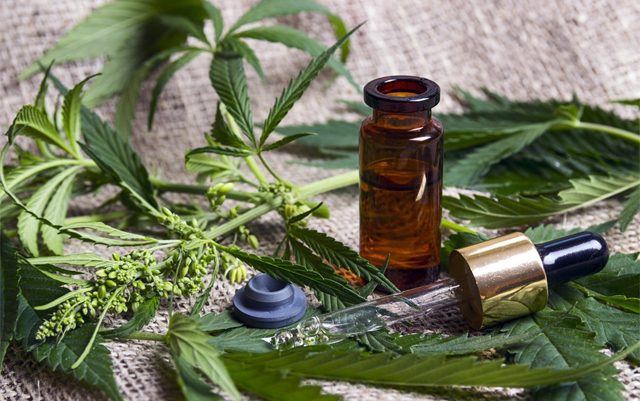In a study performed on 2,409 people, approximately 36% used CBD to treat pain, anxiety, and depression with high rates of success.
CBD is also known as cannabidiol and starting 2018, it’s legal in all 50 states of North America. CBD can help treat a wide number of diseases and ailments, including seizures, depression, anxiety, chronic pain, arthritis, and more.
People are concerned about CBD drug interactions. Is this substance safe? Can you take CBD with other medications? Does it interfere with certain drugs?
If you’re about to supplement with CBD in the near future, keep reading this article to find out how it might interact with other drugs.
Top Facts You Should Know Regarding CBD Drug Interactions
CBD is slowly becoming a multi-billion dollar industry, and it’s sold in different forms and packages. The most popular form is CBD oil, but you can also take it as a pill or in liquid form.
CBD can interact with the enzyme cytochrome p-450. This is why you should be careful when it comes to mixing CBD with other medication.
What Is The Cytochrome P-450 Enzyme?
This enzyme is responsible for processing and metabolizing approximately 60% of all the drugs and medications prescribed by doctors. This enzyme is found in the liver, and it’s part of a larger system which processes drugs and makes them effective.
Your health condition and any other drugs you might consume can interfere with the cytochrome p-450 system. Some drugs can increase its metabolic speed; others can slow this system down.
CBD also has a strong influence on this enzyme. It can slow down the metabolizing process of various medicines and drugs, making them less effective. That’s why you should be careful not to consume CBD with certain medications.
Using the Grapefruit Reference
Studies have shown that certain enzymes in grapefruit can also inhibit the cytochrome p-450 enzyme system and reduce its effectiveness. Some medications actually have printed on their labels to avoid grapefruit while taking that particular drug.
You can use this information when you consider your approach to what drugs should not be taken with CBD. For example, if the doctor warned you not to eat grapefruit when taking a drug, chances are that you shouldn’t consume CBD either for the entire treatment period.
If you’re unsure, you can either ask the doctor directly when he prescribes you medicine, or you can read the label carefully. If you see any reference to not eating grapefruit, then you probably shouldn’t consume CBD products either.
The Interaction Between CBD and Blood Thinners
CBD also has a strong influence on blood-thinning medication such as warfarin. CBD oil or other CBD products might increase or reduce their effectiveness. At the same time, CBD also interacts with drugs which might have a risk of thinning the blood, such as ibuprofen.
CBD can also interfere with other medications, which increase the risk of bleeding, so you should talk to your doctor before using CBD products in this case.
CBD and Anti-Seizure Medication
As you probably already know, CBD can be effectively used for alleviating seizures in people of all ages.
It does this by inhibiting certain enzymes in the body which cause aggressive and long-lasting seizures. It’s important to speak with your doctor because you need to take CBD in the right dosage.
Each person is different, and some might need a larger dose of CBD while others need a smaller one. During the treatment period for seizures using CBD, the cytochrome p-450 enzyme will also be inhibited, so other drugs you might take will not be as effective.
CBD’s Interaction With Chemotherapy Drugs
Chemotherapy drugs treat different types of cancers. They are specially designed by doctors to be metabolized in a certain way before entering the body of a patient.
At the same time, CBD can interfere with the way the liver processes chemotherapy drugs. It’s important to talk to your doctor before taking CBD oil in combination with chemotherapy drugs.
Studies show that there is some benefit for taking CBD oil with chemo drugs, as CBD can alleviate chronic pains and discomfort. However, the chemo drugs should be formulated in such a way as to account for the administration of CBD as well.
The Interaction Between CBD and Sedatives
CBD products have a powerful soothing effect for people who use it regularly. It makes them calmer and more relaxed. In fact, CBD oil can be successfully used to treat various sleep problems such as insomnia, sleep apnea, and more.
Combining CBD products with sedatives might be redundant in this case. Sedatives help to create the same state of relaxation in users, and combining them with CBD will only increase the calming effect. Although there are no known negative effects of using CBD in combination with sedatives, it may be best to use them separately.
Other Drugs CBD Might Interact With
The Indiana University School of Medicine has prepared a helpful list of drugs which are metabolized by the cytochrome p-450 system. By taking CBD in combination with these drugs, their effect on the body might be increased or decreased accordingly.
The list includes:
- NSAIDs
- Estrogen Influencers
- Anesthetics
- Beta-blockers
- Benzos
- Prokinetics
- Antihistamines
These are just a few of the drugs which can be affected by CBD. Make sure that you talk with your doctor before combining them to avoid any potential side effects. Visit this website to learn about these interactions in greater detail.
What Are Your Preferred CBD Products?
Whether you use CBD as oils or pills, you’ll definitely reap their benefits if you use them in the right dosage. Making sure that you respect CBD drug interaction guidelines will only enhance your experience and avoid side effects.
If you already consume CBD, what are your favorite products? And for what health problems do you take them? Is CBD working for you?
Share your stories in the comments below, so others can learn from your experience.
Disclaimer: This article is intended for information and entertainment purposes only and is not intended to reflect the specific views of the publication.






